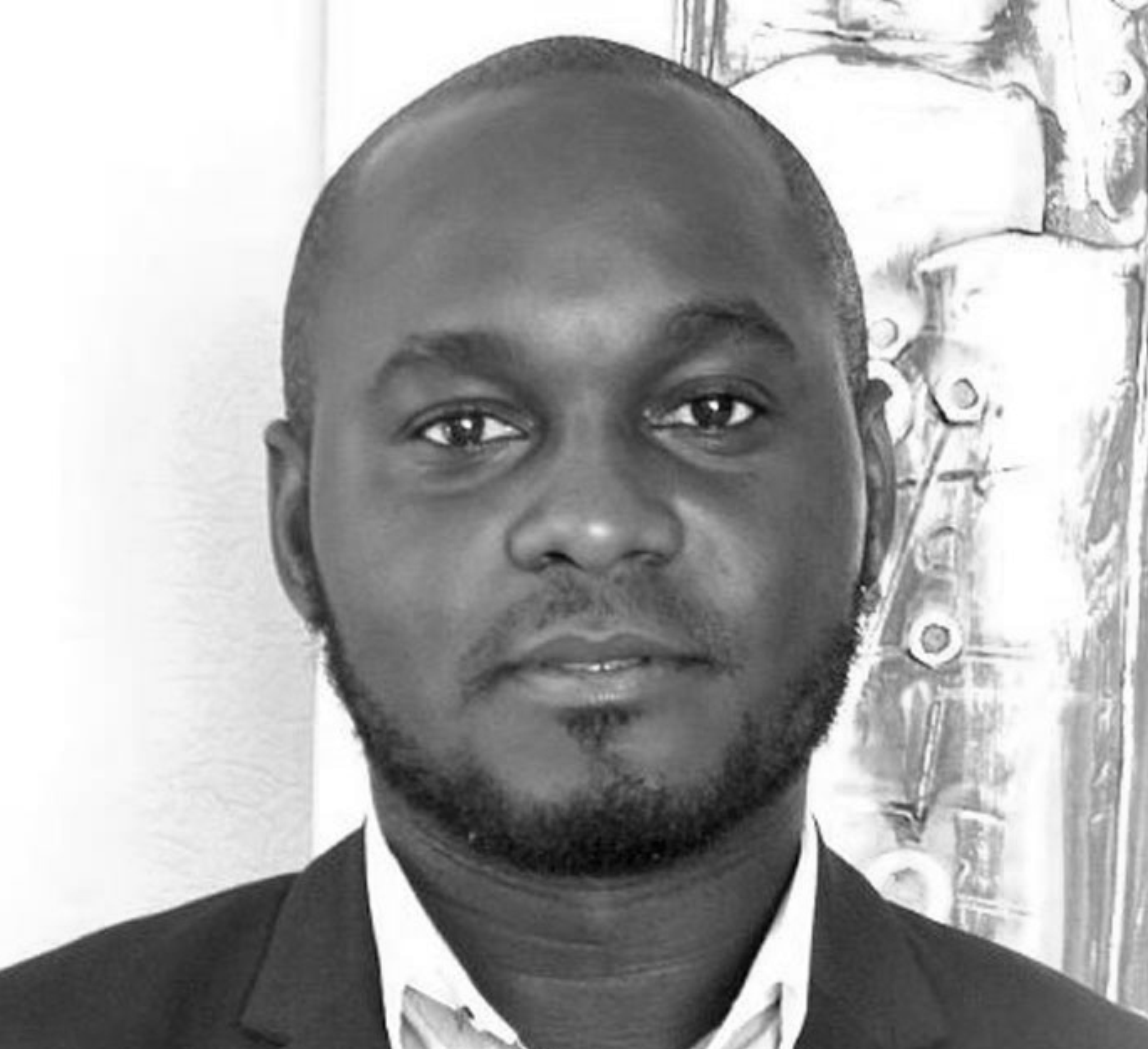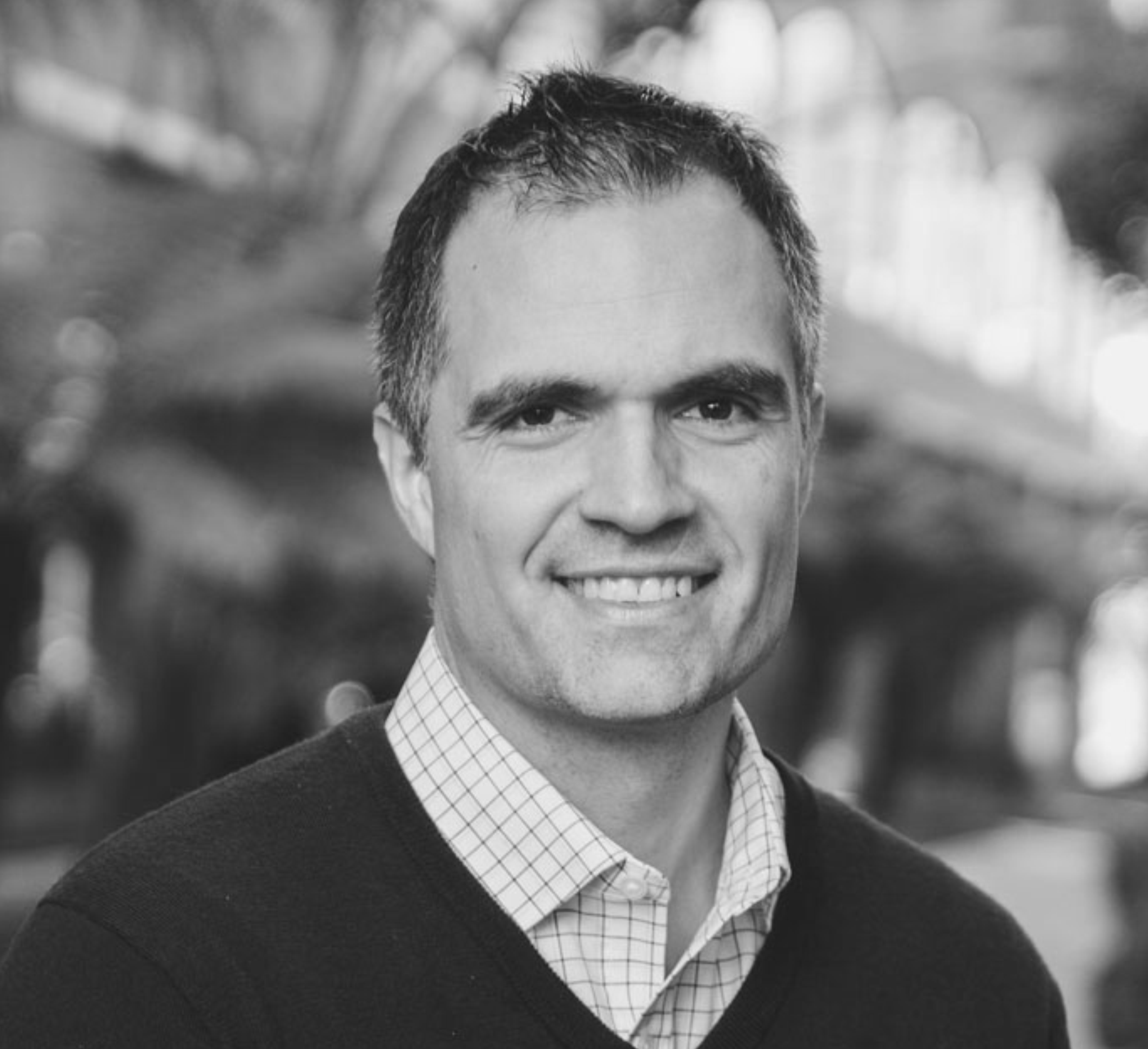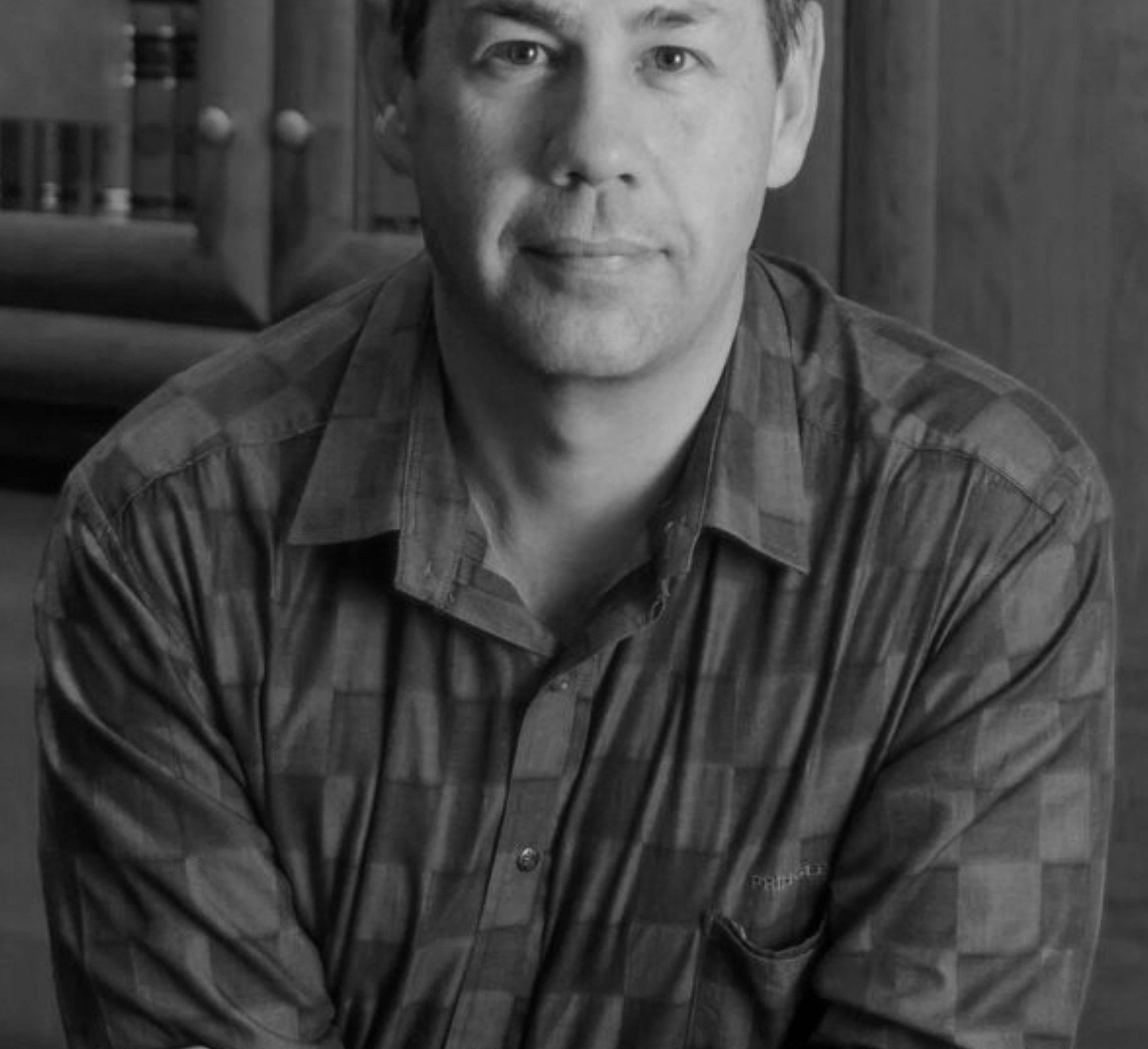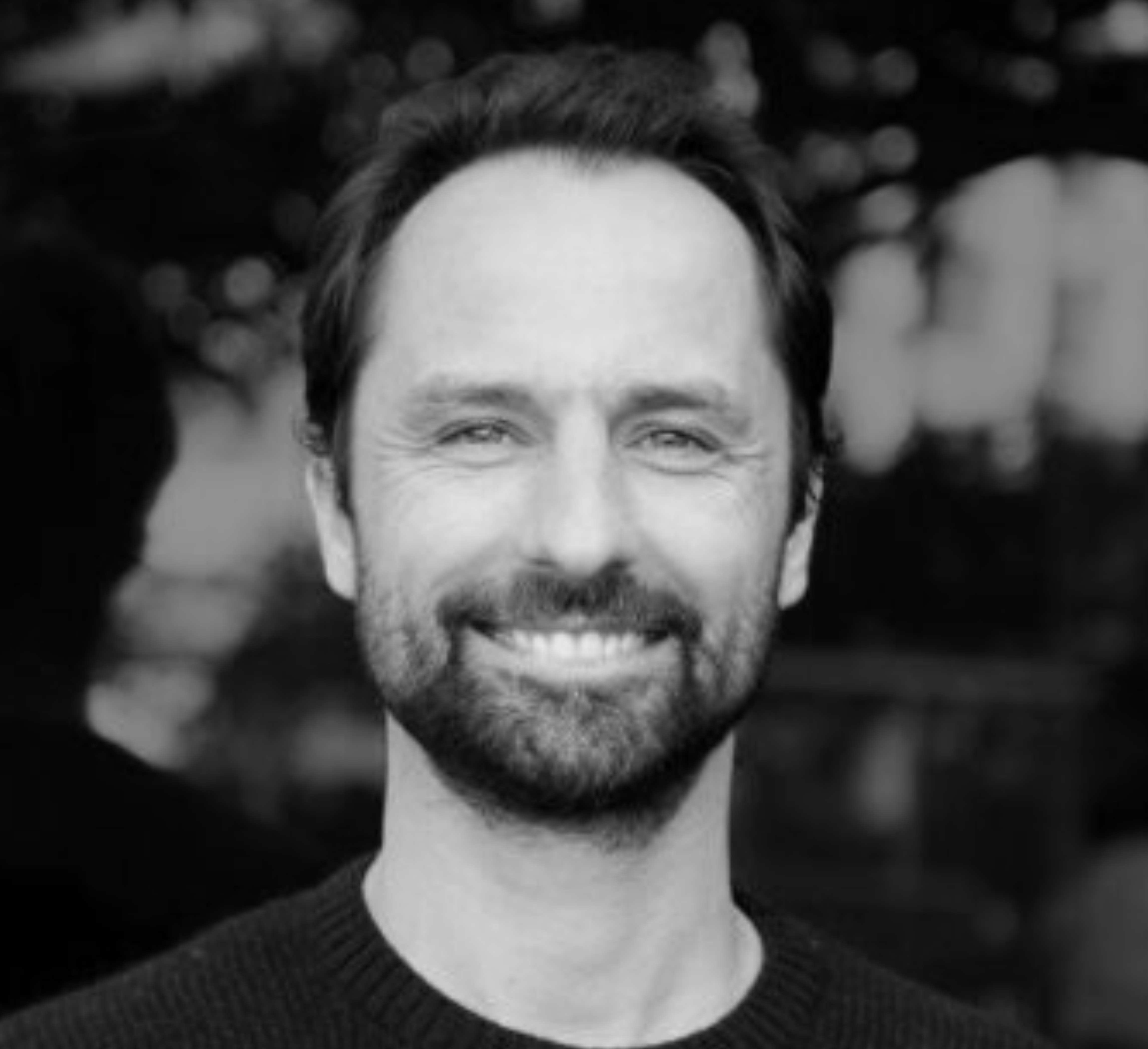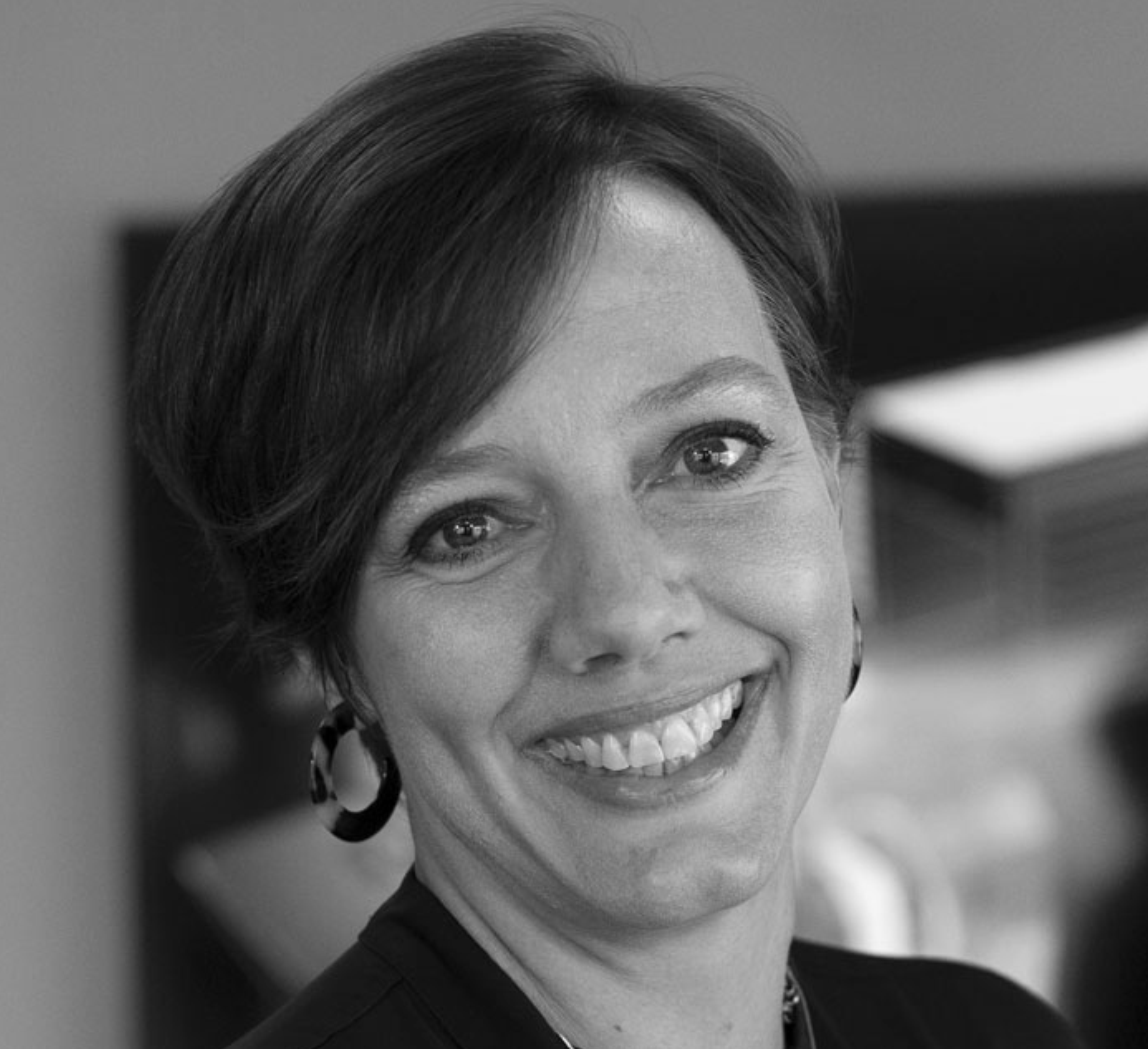135: Douglas Tuva
Empowering Africa’s Informal Retailers
Returning to his home of Kenya, Douglas Tuva, decided to take the plunge and move from corporate companies to a startup, where he is CFO at Kyosk Digital Services, connecting informal retailers directly to fast-moving consumer goods by leveraging a tech platform.

CIARAN RYAN: Today’s podcast is sponsored by Draftworx, which provides automated drafting and working paper financial software to more than 8000 accounting and auditing firms and corporations. CFO Talks is a brand of the South African Institute of Business Accountants. It’s my great pleasure today to welcome Douglas Tuva, who is CFO at Kyosk Digital Services. Now, that’s a growth stage, B2B tech-led startup company, and Douglas is talking to us out of Nairobi in Kenya, and it’s empowering Africa’s informal retailers while solving one of the continents last mile distribution challenges, which as we know, is one of the great hindrances to further financial inclusion and further business entrepreneurship in Africa. We’ll find out more about that in a minute. Douglas was previously head of finance, acceleration and Sub-Saharan development for Pernod Ricard Sub-Saharan Africa. One of his main functions there was to develop a digitisation roadmap for finance with three main streams, automation, dynamic and visual performance dashboards,
and up-skilling of the finance organisation. Douglas has worked his way up through the ranks at Pernod Ricard and prior to that, he was with Proctor & Gamble. So he has vast experience of leading teams with cross-border footprints and teams that understand the value of brands. Douglas has an MBA from the University of Cape Town’s Graduate School of Business. He’s also a certified public accountant and he completed his BCom degree at Strathmore University in Nairobi. Douglas was just telling me before we came on air, that he is originally from Kenya. He spent many years in Johannesburg, he’s now back in Nairobi. So first of all, welcome, Douglas, give us a little bit of your background, how you ended up back in Nairobi, how long you’ve been there and what you were doing before that in Johannesburg.
DOUGLAS TUVA: Thank you Ciaran, thanks for having me, I am delighted to be on air with you. I’m back in Nairobi now, having spent the last four years in Johannesburg working for Pernod Ricard. I’m originally from Kenya, so it’s great to be back home.
CIARAN RYAN: Give us a bit of background about Kyosk Digital Services, what kind of company is that?
DOUGLAS TUVA: As you rightly said in your intro, Kyosk is a tech-led B2B platform, building the official retail of everyday essentials and financial inclusion and access, starting from here in Kenya. It’s been about two years now since it started, and we have been connecting informal retailers directly to fast-moving consumer goods by leveraging a tech platform to communicate demand and manage the delivery of these goods to retail outlets.
CIARAN RYAN: So the idea is basically to offer informal sector operators a way or a platform that they can actually receive and make payments. Does it interface with the banking system? Give us a little bit of the technical background on this.
DOUGLAS TUVA: So we are not yet at the stage where we are interfacing with banks. That’s something that we’ll move into. At the moment, what we do is to clearly communicate the demand of goods from these informal retailers to FMCGs and then to manage the whole delivery chain through to the owners and payments are submitted via M-Pesa.
CIARAN RYAN: M-Pesa is another Kenyan success story. Maybe just explain what is M-Pesa for people outside of Africa who don’t know what it is.
DOUGLAS TUVA: M-Pesa is a mobile based payment method, by using your phone, you can make payments for any goods or services in the same way you were using your credit card or debit card. It works both for the USSD mode, as well as on the smartphone app.
CIARAN RYAN: It’s been very widely used, I think, in East Africa in particular, there’s been huge adoption for M-Pesa, right?
DOUGLAS TUVA: I think it’s fair to say that in Kenya today it’s the most popular means of making payment.
CIARAN RYAN: Can you do remittances with that, cross-border remittances, that kind of thing?
DOUGLAS TUVA: Yes, when I was based in Johannesburg, I had my Kenyan line, and I was able to make payment via M-Pesa. Although, of course, we didn’t have the agency in South Africa, so what I would do is pull money from my Kenyan bank account into my M-Pesa and I would remit the M-Pesa to whoever I wanted to make payment to.
Returning home to Nairobi
CIARAN RYAN: You moved back recently to Nairobi, how long ago was it that you moved back?
DOUGLAS TUVA: It’s been two months now. So I moved here officially in April to take on this new assignment with Kyosk.
CIARAN RYAN: So it’s very new, did you have a family who you had to relocate with you, what were the logistics behind that?
DOUGLAS TUVA: Yes, I was living in Johannesburg with my family, it was not very complicated to move with them. Obviously, we were moving back home and that’s not the same as when you are moving abroad. We managed the logistics quite smoothly, there was some delay with moving our household goods but finally it arrived after a shipment backlog.
CIARAN RYAN: When you left Nairobi, was there a house or a property that you had to leave behind or did you have to now find new premises back there?
DOUGLAS TUVA: We had to find new premises but, surprisingly, it was not very difficult during this time I suspect because also the real estate market is not as vibrant. So not many people are looking, so there isn’t a lot of competition terms of finding an apartment.
CIARAN RYAN: I see, so there’s more accommodation available now, it’s easier to find accommodation?
DOUGLAS TUVA: I would say yes for the simple reason that, as you understand, there are many people who because of Covid have lost jobs and some of them have moved to the rural areas or some of them have tried to go to places they can afford. Therefore, there’s a sense of easy availability of accommodation in Nairobi.
CIARAN RYAN: Before we go on to a little bit more about Kyosk and your career, just give us a sense of how the economy in Kenya is doing. Tourism traditionally has been a big part of the economy there. Has that been suffering? I’m sure it has, like most countries in the world.
DOUGLAS TUVA: Yes, tourism has suffered a lot. Kenya has gone through what we call the third wave much longer than, for example, in South Africa. Hotels have been closed for the most part, restaurants have not been operating for the most part, while hotels and restaurants are now open, they are on very restricted hours, so their turnover would not be as high as in normal times. Generally, the economy has definitely taken a hit, we’ve had reduced hours of work, reduced hours of service. As you walk into town you don’t get that sense of hustle and bustle, you don’t get that sense of people moving up and down due to economic activity. This is s clear indication that the economy has taken a hit due to Covid.
CIARAN RYAN: For example, the street hawkers who you would find around the River Road area in Nairobi, are they still there or is it reduced? Give us a sense of what it’s like on the street?
DOUGLAS TUVA: It’s coming back now in the last month because there’s been a relaxation of restrictions. At the peak when the positivity rate was high, you would not have seen anyone if you went there. But now there is a gradual opening, so you see that people are beginning to come back to the streets more and more. But because we still need to observe the Covid protocols of social distancing, you will not find the crowds that you are normally accustomed to in that kind of place.
CIARAN RYAN: So it’s up a bit, restaurants and things like that, if you’re walking around in Nairobi?
DOUGLAS TUVA: Yes, with caution, I would say.
CIARAN RYAN: Okay and are you operating remotely or are you operating from an office at the moment?
DOUGLAS TUVA: It’s a sort of a hybrid system, working remotely from home, but also with some limited office time a few days in a month, but for the most part, working remotely from home.
CIARAN RYAN: Give us a bit of background on your career. Were you born in Nairobi or was it somewhere outside of that and just tell us what was your career journey and how did you end up here?
DOUGLAS TUVA: I was born in a coastal town called Mombasa and then later moved about 60 kilometres north to a town called [unclear]. So I grew up there, I went to primary and secondary school there, and pretty much lived my life there until it was time to go to university. Then I moved to Nairobi to start my university education at Strathmore University, which is in fact my alma mater. Then when I was doing my final year of university, there was a recruitment drive by one of the companies, Procter & Gamble, so I jumped into this recruitment drive, and I was successfully chosen for a role. Therefore, I joined Procter & Gamble way before I had actually graduated.
CIARAN RYAN: So before you even left university, you got a job offer at Procter & Gamble, right?
DOUGLAS TUVA: Yes, about six months before completion.
‘For about 18 months I worked in IT without any background in IT.’
CIARAN RYAN: Okay and what posts were you taking on when you went to Procter & Gamble?
DOUGLAS TUVA: I actually started in IT, although I didn’t have a background in IT, but at that point Procter & Gamble wanted someone who could look after the IT department for a very short time because Procter & Gamble was going to outsource their IT to Hewlett Packard and, therefore, after a couple of months when the deal would have been concluded, there would be no career for IT and this person would have to have the flexibility to move into finance. So I happened to be that person. For about 18 months I worked in IT without any background in IT, but I learnt a lot. Then when the deal was concluded, and the IT services were outsourced to HP, I move full-time into finance, starting off as an accounts assistant. I did several assignments there, starting from the back office accounting and reporting role and gradually to more customer-facing assignments such as distributor operations, working with third party distributors to expand footprint, helping distributors track ROI in terms of the investments they had made. Then in June 2012, I was recruited by Pernod Ricard East Africa. Pernod Ricard was just coming into East Africa to start their local affiliate and they had a need for a head of finance. So I joined Pernod Ricard East Africa as the founding head of finance with the mission to basically build the finance organisation from scratch, which was one of the most challenging things I have had to do because I arrived there on day one and I was given a desk and a laptop, and I had to start from nothing to build the finance department, which included recruiting staff, coaching the team and giving them direction to support the business from a finance point of view.
CIARAN RYAN: How big was that team once you’d completed it?
DOUGLAS TUVA: I started alone and gradually grew it to about eight people.
CIARAN RYAN: With Procter & Gamble you probably got very useful exposure to a company with a very prominent brand, lots of products, cross-border footprint, all of these kinds of things, and very established financial systems, that would have helped you quite a bit, I imagine, by the time you went to Pernod Ricard.
DOUGLAS TUVA: That’s correct. I think, for me, there would never have been a better place to start my career than at Procter & Gamble because there were lots of opportunities, both locally and abroad. [Unclear] leading edge systems and standards, and really top-quality mentoring from my seniors.
CIARAN RYAN: Let’s talk about your move into accounting because you’ve had a bit of an unconventional career as an accountant. You came through the university system through Strathmore in Nairobi. Then you did an MBA through the University of Cape Town’s Graduate School of Business. What was the motivation for that and was accounting always your plan or was it something you fell into by accident?
DOUGLAS TUVA: I moved into accounting pretty much by accident, it was never really the career that I always wanted to do. Although, I must say, I very quickly came to love and enjoy accounting and I have always had a passion to grow in this area. From an early stage when I started, I knew that I didn’t want to [unclear] in a typical accounting assignment. I wanted to go into business, I wanted to understand how business works and strategy in an organisation, so I decided then to enroll for my MBA to get a sense of how does finance interact with operations and commercial, things like organization behaviour, people management, the nexus between government, business and society. All of this in the context of the African setting. I was clear that I was not interested in being a specialist, I wanted to be more of a generalist. So around that time when I was scouting for an MBA to do, I came across the business school and the MBA that they were offering at the University of Cape Town, which had a generalist management track with a stream like, for example, doing business in emerging markets, and that is what I was looking for.
CIARAN RYAN: Okay, so you ended up with Pernod Ricard in Nairobi, then you moved to Johannesburg at some point, pick up the story from there.
DOUGLAS TUVA: I worked with Pernod Ricard from 2012 to 2017 and then in 2017 they proposed this assignment to me to work in Johannesburg to take on a regional role, looking after Sub-Saharan Africa. At the point when I was moving to Johannesburg, I had actually done my MBA. So I moved in July and I had just finished my MBA the previous December 2016, which basically means I was doing my MBA on the modular programme, so flying between Johannesburg and Cape Town for my MBA studies.
Moving from corporate to a startup.
CIARAN RYAN: You’ve occupied very senior positions in very prominent multinational companies. Now you’ve moved back to Kenya and people might say, well, why did you do that, why did you go back to Kenya into a startup B2B type company? What was your thinking there?
DOUGLAS TUVA: Two things, after six years we thought as a family that it was time to come back home and I think this feeling was amplified by all the restrictions around Covid, having lived in South Africa as a family but feeling that we really didn’t have a support system. So we decided it’s time to go back home. So I started shopping around for something in Nairobi and I came across Kyosk and, for me, what made me take up the role at Kyosk was I was sold on two things and one was that I just turned 40 in January and I wanted to do work that had more meaning and, therefore, the whole mission of Kyosk trying to empower informal retailers, helping them with better margins, more profit in their pockets, which is money that these people need for the day-to-day improvement of their livelihoods. Then the second thing for me was the whole use of technology, I’m quite big on tech, I read and follow a lot of the tech trends, and I know the power of technology to break barriers and create access to possibility. So these two things were such a sweet spot for me, a confluence of two factors that really spoke to me and, therefore, I decided to take the plunge and move from these big corporate companies to a startup.
CIARAN RYAN: So the one thing was the tech, it has got a very strong tech focus, and the other thing was Covid. Yes, I can imagine, you’re turning 40 and you probably want to be closer to your family. So the decision to move back to Nairobi when the opportunity came up, I guess was a fairly easy one, right?
DOUGLAS TUVA: Yes.
CIARAN RYAN: And you haven’t been disappointed by that decision, even though you’re in the middle of lockdown in Nairobi.
DOUGLAS TUVA: If there is any place that I think it’s okay to be locked down in, I think it’s home.
CIARAN RYAN: And is a Mombasa not your home really, where your family is?
DOUGLAS TUVA: I actually originally come from the coast, as I said in the beginning [unclear], I have relatives along that whole coast.
CIARAN RYAN: Okay, so you’ve lived all along there and are your family still living in those areas?
DOUGLAS TUVA: Yes.
CIARAN RYAN: Again, your unconventional route into accounting and also your bridge into technology, I think that’s a very, very interesting combination, and it’s very much where the future of accounting lies. But my question to you is, are there some things that you are not going to learn from your accounting education, you’re only going to learn this when you’re thrown in the deep end and presented with a challenge, and you’ve got to learn basically from the ground up.
DOUGLAS TUVA: I would say yes. Certainly, there are skills that you can learn from a business school like technical skills. You will also learn a lot of frameworks and a lot of models on leadership, for example, on change management, on influencing, on persuasion. But I think unless you experience the real-life cases of these kinds of challenges [unclear] I guess the proof of the pudding is in the eating. So those skills you will not learn in school but in the real world.
CIARAN RYAN: Some of those skills that you’ve learned, no doubt, through experience are things like team leadership, you had to basically build and train a team from the ground up. Now that’s something that you’re not going to learn in an accounting school. One of the things that the South African Institute of Business Accountants has done is launched a designation called the certified financial officer or the CFO (SA) designation. Basically, what it does is it acknowledges people for these competencies that are acquired through experience like strategy, like team management, like communication, one of the most understated skills of the accountant, you have to be able to communicate. Would you agree with that viewpoint that these are skills that are just not taught?
DOUGLAS TUVA: I fully agree, I think that those skills that you mentioned are not very different from the ones I mentioned like leadership, for example. Communication is part of the skillset of a leader. As I said, you can learn models, you can learn frameworks, you can learn strategies, but you have to actually practice them to feel that you have mastered these skills.
CIARAN RYAN: Now, what would you say was one of the most challenging tasks you had to do? Was it this building of the team that you had to do at Pernod Ricard?
DOUGLAS TUVA: That was one but another one was in June 2017 when I left Nairobi to move to Johannesburg to take on this regional assignment, arrive there and it was a period of a lot of change. Again, I was faced with a situation, where from a team of about nine or ten, and for different reasons, this team was down to two people. So again, I had to build this team and in this context in some cases people were remotely located in Cape Town and other markets. So this was another challenge in the whole context of me just moving into a country with a young family and trying to settle down and without much room to acclimatise to the context.
‘All the developments in the digital world are definitely going to impact the career of a CFO.’
CIARAN RYAN: When you’ve gone from ten down to two staff and you have to rebuild or you’re starting with just yourself and you’ve got to build up to a team of eight and they’re not easy assignments, I’m sure. What advice would you give to aspiring CFOs or finance executives, things that you’ve learned the hard way and you want to give them a bit of a shortcut or a leg up, what would you say to them?
DOUGLAS TUVA: Remain curious and my second piece of advice would be to embrace digital. All the advances, all the developments in the digital world are definitely going to impact the career of a CFO. So you should be ready as an aspiring CFO to want to upskill and equip yourself with the skills of the future.
CIARAN RYAN: Tell us a little bit about yourself, you have a family, how many kids have you got?
DOUGLAS TUVA: I have three kids, all girls, between three years and six years old. So you can imagine they can be quite a handful and with lots of energy.
CIARAN RYAN: What do you do in your downtime?
DOUGLAS TUVA: I like to spend a lot of time with my family, whether it’s on a road trip, sightseeing or whether it’s just lazing about in the backyard.
CIARAN RYAN: In Nairobi, do you take little daytrips out with the family or what do you do?
DOUGLAS TUVA: Yes, a lot, you are allowed to drive around, we only have a curfew at night. In northern Nairobi there’s a national park that is pretty much in the middle of the city and we go there quite a bit just to unplug and get some fresh air. The other thing I do during my free time is I read a lot and follow trends in technology [unclear], how it’s converging and pretty much making business life and industries…So I read a lot on technology. Then occasionally, when the time allows, I like to meet with my very close-knit club of boys for an occasional [unclear] but unfortunately, that is few and far between because of the restrictions around mingling.
CIARAN RYAN: Okay, final question here, are there any books that you would recommend?
DOUGLAS TUVA: Yes, I can recommend two, the one is Deep Work by Cal Newport, which is basically about strategies for focused success in a very distracted world. Another book is The Future Is Faster Than You Think: How Converging Technologies Are Transforming Business, Industries, and Our Lives by Peter Diamandis and Steven Kotler, which is about this technology revolution and how it will impact us in the not-so-distant future.
CIARAN RYAN: Okay, fantastic and it sounds like you’ve got a busy time up there between three young girls, a young growing family, and having just moved back to Nairobi, obviously getting your feet on the ground with a new business, a startup business. The invitation is there, please stay in touch and I’m very keen to find out how the business goes in the course of this year. Hopefully the third wave passes and some of these restrictions are lifted, and life gets back to a bit more normal. Nairobi is normally, as we were discussing before, a very spirited place and the Kenyans are very spirited people, and I don’t think they like being confined, I’m sure they want to be out on the street. Anyway, it’s an exciting project and I really wish you the best, so please let’s stay in touch and let’s get you back on in a few months, I want to find out how this new operation is doing.
DOUGLAS TUVA: Absolutely, thank you so much for having me and you’re welcome to Nairobi.
CIARAN RYAN: Thank you. That’s Douglas Tuva, who is the CFO at a very fascinating new company called Kyosk Digital Services.

